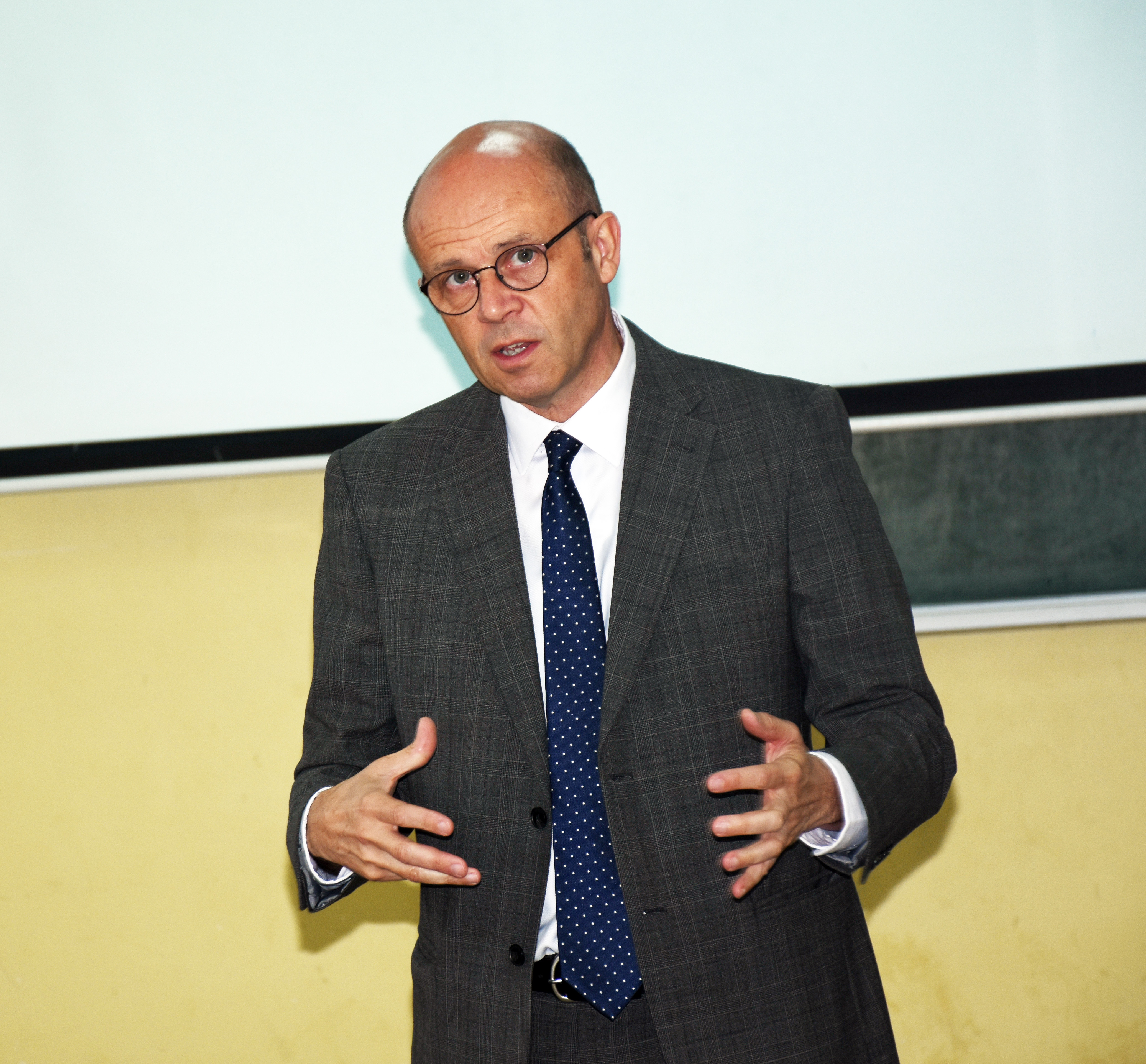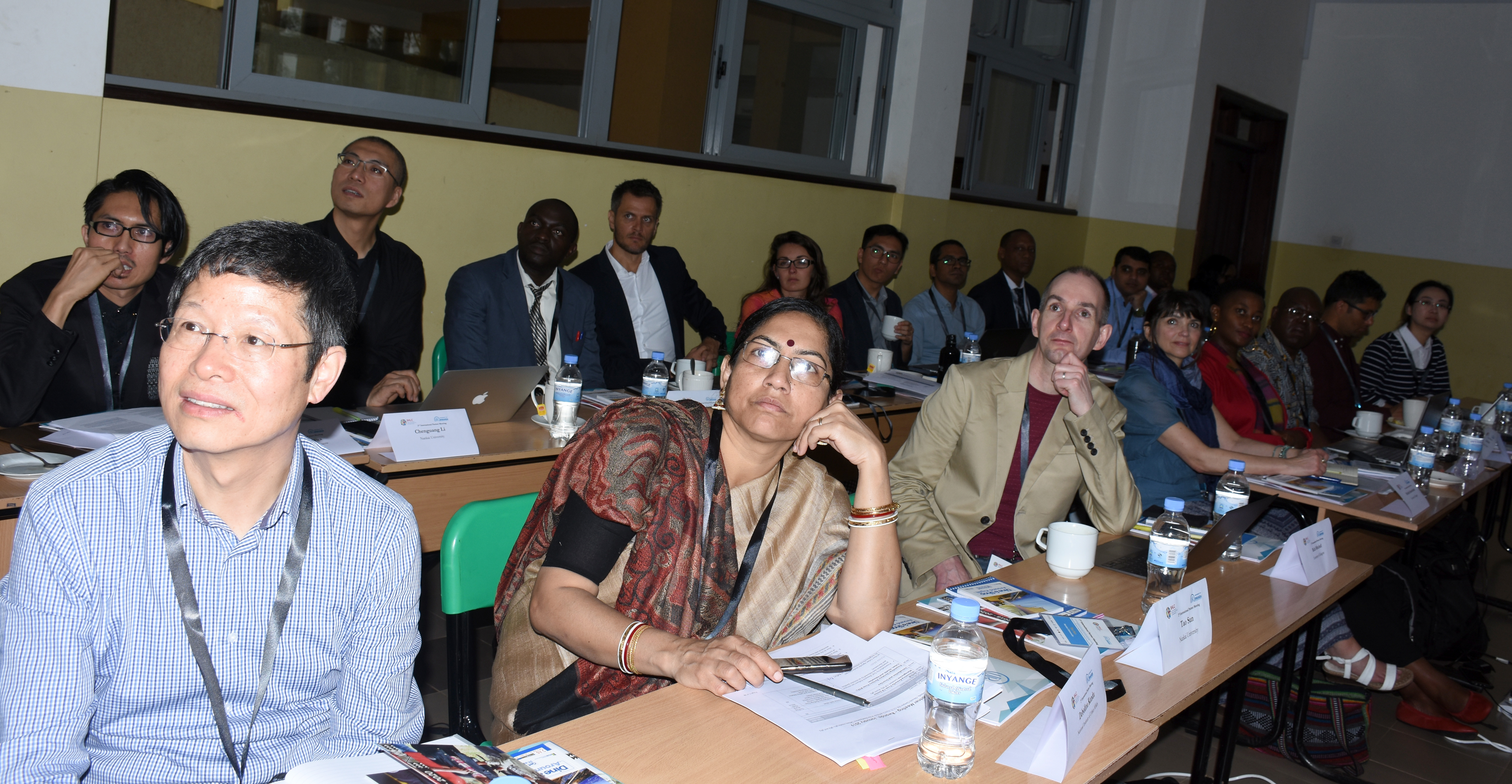
UR-Sweden Symposium showcases innovation-driven solutions to Rwanda’s pressing challenges
- 13-06-2025
- 420
A multi-disciplinary group of researchers from 8 countries from 3 continents are gathered at the University of Rwanda in line with the project “Centre for Sustainable, Healthy and Learning Cities and Neighbourhoods”. This group is poised to conduct a study on urban neighbourhood dynamics and public service provision in Africa and Asia. Cities in Rwanda that are targeted in the study include the city of Kigali and Huye respectively.
This study brings together academic researchers (including urban studies, health and wellbeing, and education) and international experts from Rwanda, Tanzania, Bangladesh South Africa, India China, the Philippines and UK, to address the complex issue about inter-relationships between sustainable cities, education and health, at the level of the urban neighbourhood.

Remarks by Prof Cotton during the meeting
During the meeting, Prof Phil Cotton, UR Vice Chancellor noted that the presence of the project is yet again an initiative that will complement the existing successes such as the achievements by centres of excellence especially the 4 centres that are funded by the World Bank. According to him, the bottom line is that the University of Rwanda, in line with the World Bank Human Capital Index, works hard to give opportunities to the young people of the country.
“The core responsibility of the University is to give education and knowledge that creates the lives of young people” He said.
The overall aim of the project is to grow research capacity in both developing countries including Rwanda and the UK through a series of training programmes/workshops and by means of multi-disciplinary and comparative studies of urbanisation and the formation and differentiation of neighbourhoods in urban areas, in order to address the challenges of urbanisation and large scale rural to urban migration in Africa and Asia. The research will identify urban planning and public service change as it relates to urban neighbourhoods and position this alongside an in-depth study of daily experiences of neighbourhood life.

A section of participants in the meeting
UR academics will be among the 99 researchers from leading institutions who will have the opportunity to work together. They will benefit from multi-disciplinary exchanges which will enhance their own capacities and knowledge, gain from exposure to unfamiliar contexts and new ideas, and work in new ways. Through these means the programme will create a strong partnership between the participating universities, who will benefit from enhanced trust and reciprocity across international boundaries. The programme is only the first initiative of a long lasting, international partnership that will go on to develop further research and impact work.
The programme will bring significant benefits to the wider academic community including that of Rwanda. It will contribute to knowledge in the fields of urban studies, development studies, health inequalities and learning and to the understanding of the positive and negative effects of neighbourhood dynamics in urban transformation. The research will provide new data and thinking, and contribute to policy development in a vital area. This will ensure its wide interest across a number of academic disciplines and subject fields and its data and its published outputs will become an important resource for scholars around the world researching or teaching urban studies, public policy, society and politics, development politics and economics, and specialists in the fields of planning, education and health.

Academic researchers across the world attended the meeting